Asma Maqsood-Shah Coaching Profile
Asma Maqsood-Shah
Asma Maqsood-Shah

Coaching Bio
I am a strong advocate of lifelong learning and its importance in developing confident, self-motivated individuals who are active participants in an inclusive society. Coaching, I believe, is guided by mutual respect and trust. To this end, I strive to create a positive process and environment whereby the individuals I coach can and will be comfortable examining issues more deeply, think differently and then use that to define their own solutions to complicated challenges. It is a developmental partnership that helps individuals/leaders to get to where they want to get by channelling the best within them.
Coaching Experience
I have been coaching for over 4 years. Much of my coaching experience has been within the education sector and of senior leaders including headteachers and executive heads. However, I have also been coaching 2 company directors regularly for almost four years. In addition, I have extensive experience in coaching middle leaders and supporting schools (both primary and secondary) in building capacity within their leadership teams and raising standards. My philosophy is that coaching is an experiential and highly personalised process aimed to support and advance individuals and teams’ capacity to achieve short- and long-term goals. I have a track record of doing this successfully within my schools and beyond.
Career Experience
I am currently a serving headteacher of two 3 form entry schools with a keen passion for developing people. I have successfully completed several qualifications whilst working in schools in order to enhance my own practice; including a professional qualified executive coaching programme and NPQH and currently completing the NPQEL programme. I am a leadership trainer for my Trust and currently I am developing and delivering a leadership development programme for another Trust. I am also very proud of my position as an Associate Professional for CRED at Leeds Beckett University. Most recently, I have taken on the role of a Director/Trustee of a MAT. All that I do including coaching allows me to fulfil my passion for developing people.
Coaching Qualifications
ILM L7 Executive Coaching
As a coach, Asma is caring, dynamic and always able to keep the session on track to achieve agreed goals.
Samia Al-Hakam, Assistant Headteacher (secondary)
Asma is able to adapt her coaching to deal with varied responses to complex situations and scenarios in order to support and challenge me to get the most out of every session.
Catherine Hale, Headteacher
She is able to work with and coach individuals and groups of leaders with many positive outcomes for our organisation.
Neil Campbell, Company Director
Catherine Blayney Coaching Profile
Catherine Blayney
Catherine Blayney
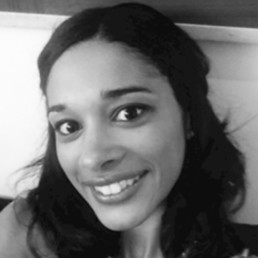
Coaching Bio
Cath’s approach to coaching is systemic eclectic – every client, conversation and journey is unique, and this notion is at the heart of her coaching practice. Her goal as an executive coach is to create a highly enabling partnership, by applying the principles of a Thinking Environment to her practice. This supports the creation of a psychologically safe space, that allows clients to think clearly, identify solutions and challenge limiting assumptions.
Coaching Experience
Cath trained as an executive coach and started a coaching business after completing the Executive coaching course at Henley Business school. She is a qualified Thinking Partner using Nancy Kline’s Time to Think approach and she uses this in both 1:1 and group coaching. Cath coaches leaders across a range of sectors, taking a values-led approach to improve self-awareness, self-confidence and to support the development of an inclusive culture in the workplace.
Career Experience
Having taught across the primary key stages and becoming an Advanced Skills Teacher, Cath spent 4 years in school leadership, including being the Headteacher of a 2 form entry primary school in London. She has also been a governor for a school within a local MAT. In addition to her coaching business, Inclusive Leadership Coaching, she coaches a range of schools and MAT leadership teams on the Anti-Racist School Award at Leeds Beckett University. She also holds a Masters in Special and Inclusive Education.
Coaching Qualifications
ILM L7
Other
Coaching Tools
Qualified Time to Think Thinking partner
I always thought I knew what effective coaching looked like until I worked with Cath. Her ability to always ask the right questions at the right time to get me to uncover deeper issues is so powerful, and I always leave our sessions ready to take action.
SA, Diversity and Inclusion Manager
Within a few seconds of speaking to Cath I find myself sharing my true thoughts. I feel relaxed, and comfortable but also challenged to look at things differently. Cath is able to get me to view situations almost from an external lens which I have felt is really helpful… I find myself reflecting on what we discussed for weeks after the session and can see the benefits daily in my behaviour in the work place.
FM, Recruitment Business Partner
Amanda Wilson Coaching Profile
Amanda Wilson
Amanda Wilson
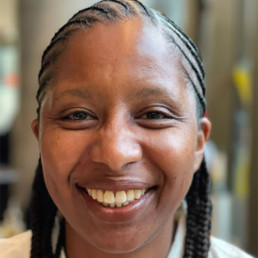
Coaching Bio
Amanda is the headteacher of St Alfege with St Peter’s CofE Primary School and has 25 years’ experience in the education sector. She is a qualified coach with an MA in Coaching and Mentoring from Oxford Brookes University and is an EMCC Senior Practitioner. She has a track record for supporting teachers in securing leadership roles, and providing a space for leaders to work through the range of challenges that they encounter daily. Amanda’s coaching style goes beyond the surface of achieving goals and through the use of Transactional Analysis focuses on the behaviours that influence decisions.
Coaching Experience
Amanda has been coaching for over 17 years, working with both educators and those in the business sector. In 2023 she completed her Masters in Coaching and Mentoring with Oxford Brookes University. Her dissertation focussed on understanding the coaching experience for Black headteachers working in UK schools. Amanda has a keen interest in Transactional Analysis (TA) and is currently training to be a psychotherapist. She uses her knowledge of TA to help her clients identify the thoughts and behaviours that may be preventing them from moving forward and work through solutions that will bring about lasting change.
Career Experience
Amanda is the headteacher of St Alfege with St Peter’s CofE Primary School and has over 25 years’ experience in the education sector. She is the founder of the First 100 Days Headteachers Conference, an annual event aimed at supporting new and aspiring headteachers. In 2023 Amanda published the book Letters to a Young Generation: Aspiring School Leaders which aims to encourage the next generation of Black school leaders. Amanda is a member of the Royal Borough of Greenwich Educate Against Racism group whose aim is to make a difference in schools by addressing racial biases and imbalances.
Coaching Qualifications
Masters in Coaching
After a number of knock backs I was starting to lose direction and needed to refocus. A coach was suggested and Amanda was recommended amongst others. After our initial meeting I chose her as I liked the way she quickly got down to business. I think it’s really important that you chose someone you feel comfortable with. I was not expecting to focus on my personal life but over the course of our work certain aspects came up, as they linked to the way I work, which was fascinating. Amanda provided challenge throughout these sessions and really helped me to reflect deeply. I feel I have grown as a person as well as regained my focus on the next steps of my career. I look forward to working with Amanda again in the near future. I would 100% recommend Amanda as a coach.
Laura, Curriculum Lead, Wirral
My name is Denise Deane and this is the first time that I have taken part in coaching. When I started the sessions, I did not really have any ideas or anticipate the effect it would have and also the impact that it would have on my life. I felt very comfortable opening up and discussing what is quite personal aspects of my work life. I have been with my employer for twenty-two years. During the coaching, Amanda questioned me and encouraged me to ask questions. The coaching also helped me to focus my mind on what is important and what I want, for me. Amanda listened to me. Helped me to stay focused. I then had clear goals and an aim in sight. Although, I have only had three sessions, I know that they helped me to be confident and have a vision. By the end of my second session, I had applied for a new job, which I got. I was well prepared for the application and the interview. My colleagues at my current job have noticed the difference in me. Recently, I have made some important life changes that I probably wouldn’t have done. I am so much happier than I have been in a long time. I want to say a huge ‘thank you’ for your support. I start my new post in January 2022.
Denise, Newly appointed SENCO, Kent
Working with Amanda was one of the most valuable learning experiences in my career to date. Her straight-talking, lead-by-example approach made her a leader that had the respect of all her staff and the wider school community and ensured that the standards in our school were extremely high. As I have developed in my career, progressing through the early stages of leadership, Amanda has frequently helped me with mentorship and coaching over the years. If ever I encounter a situation where I feel like I need the expertise of somebody more experienced, Amanda is always my first port-of-call. What I am most grateful for, is that Amanda doesn’t just tell me how to deal with issues, she coaches me through things to enable me to develop my own skillset to use in the future.
Laura, Assistant Headteacher, London
Hannah Wilson Coaching Profile
Hannah Wilson
Hannah Wilson

Coaching Bio
Hannah is a leadership development consultant, coach and trainer. She spent twenty years leading in schools, trusts, teaching hubs and universities. She now works independently. She is the Co-Founder of #WomenEd and #DiverseEd.
Coaching Experience
Hannah has been coaching and mentoring existing and aspiring leaders in education for the last decade. She came to coaching through her own leadership journey in and out of schools – coaching has helped her make strategic decisions at key milestones. She has supported hundreds of people to navigate their career, negotiate their salary / contract and find values-aligned workplaces where they can flourish and thrive.
Career Experience
Hannah has held the posts of HOD, HOY, AHT, DHT, HT & EHT. She has also held roles across trusts and teaching hubs where she has led on trust-wide priorities such as professional development and safeguarding. She has led a large secondary PGCE programme and been commissioned to design and deliver a new MA in Education, Ethics & Leadership. She is a primary school governor and has been a MAT trustee.
Coaching Qualifications
ICF ACC
ILM L7
Coaching Accreditations
CME
Positive Intelligence
RLE
Coaching Tools
She has accredited with the Coactive Institute, the Teleos Institute, the British School of Coaching and Resilient Leaders Elements. She has also trained with Giant’s Five Voices, Graydin’s Start with the Heart and Integrity Coaching’s development programmes. She is a Fellow of LBU’s CollectivEd community.
I have completed two coaching courses with Hannah; one was as part of a small group and one was paIred leadership coaching programme. Both were amazing and have had a significant, long term impact on my development as a professional and an individual. Hannah provided an excellent balance of support and challenge and the coaching she provided has without doubt, developed both my leadership skills and my confidence. I would absolutely recommend Hannah to any leader who wants to grow and develop themselves.
Laura Youngman, Headteacher
One of the best investments I made in my professional career was to have Hannah as my coach. What I value most about Hannah is that she is genuinely interested in me and my progress. She celebrates my wins and skilfully guides me through my uncertainties by giving me ideas to think through and the space to make decisions. Hannah is an expert in her field and has opened my eyes to a wide network of resources and support to help me achieve my career goals. One such resource was the Resilient Leaders Element (RLE). This was an excellent tool that helped me identify my strengths and provided me with solid feedback on what I could do to develop resilience as a leader. If you are looking for a coach who will challenge you, support you and is who is skilled and knowledgeable in their field of work- then I would highly recommend working with Hannah.
Elizabeth Walsh-Iheoma, College Leader
Hannah is an authentic and inspirational coach- her values driven approach is a breath of fresh air! She goes above and beyond to support and empower others to rise to challenges; overcome setbacks; develop resilience and to reflect. She is a gem – an absolute pleasure to work with.
Hidaya Hallak, Middle Leader
Hannah and I worked together over a period of 6 sessions and I found my personal growth and resilience goals consolidated through Hannah’s guidance. Hannah created a safe space within which I felt listened to, was able to tie together past progress and learning milestones, and integrate these into a plan for who I needed to be for my new stage of life and work.
It felt validating to give concrete shape to certain long-standing aims that I had temporarily put on pause, and to do so with a values-base that best suits who I am. Hannah’s supportive and empowering frameworks and questioning helped me to craft a plan for growth that I am staying true to in the months ahead.
Aditi Singh, Assistant Headteacher
Julie Keyes Coaching Profile
Julie Keyes
Julie Keyes
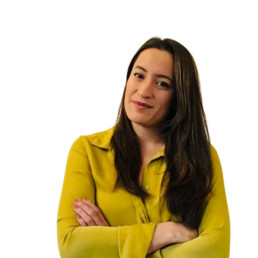
Coaching Bio
Julie is passionate educator with over fifteen years of first-hand experience and more recently consultancy/coaching experience. Driven by her wealth of experience and coaching accreditation, Julie Keyes established The Educational Coach in 2021. She meticulously handpicked a team of exceptional coaches and educators, and introduced The HELP Method, a transformative model she personally designed and implemented in schools worldwide. Based in the UK, Julie values time with her family and enjoys taking in the sea air on coastal walks.
Coaching Experience
Her passion for enabling people to develop themselves and achieve their maximum potential brought her to strengths-based coaching and this has formed her coaching approach. It is her firm belief that coaching raises self-awareness, self-confidence, and self-leadership. Julie is a member of the ICF and an accredited training provider of the Association for Coaching. Engaging in coach training is her personal passion – she is currently working towards her next level of accreditation at ICF PCC level.
Career Experience
A teacher by vocation and training – Julie has worked at all levels in education from class teacher, Head of department, Head of faculty and deputy head. Alongside this Julie has worked on leadership programmes for large law firms and corporate organisations, working with many high-profile organisations including Baker Mackenzie, Reed Smith, Allen & Overy, Nestle and Mastercard. She is a professional member of the Charter College of Teaching. Julie has also held the role of trustee with a large school trust and created and developed a module on parent partnerships for Discovery Education and National Association Headteachers. She is currently a PGCE tutor for the University of Buckingham.
Coaching Qualifications
ICF PCC
NLP
Coaching Accreditations
Five Dysfunctions of a Team
Coaching Tools
Clifton Strengths
Julie is an outstanding coach with expert insight. She is able to quickly build strong relationships with colleagues because of her warmth and enthusiasm and quickly develops trust. Her impact is immediately tangible and she helps teachers to feel supported and challenged whilst also understanding the complex challenges they experience in their day to day practice. Julie is an invaluable asset to a school’s development and helps provide a highly informative, research led, external perspective which has significant impact on the school.
Charlotte Harmer, Director of Teaching and Learning
I cannot put into words how much the coaching with Julie has improved my confident and now I am applying for jobs I never would have had a year ago.
S.Tutal, Head of EYFS
Inclusive RSHE Toolkit
Inclusive RSHE Toolkit
Inclusive RSHE Toolkit
Toolkit collated by Ian Timbrell and Malarvilie Krishnasamy
What is RSHE?
RSHE, which stands for Relationships, Sex, and Health Education, has been compulsory for schools since September 2020. Primary Schools are required to teach the relationship aspect of RSE, whilst secondary schools are mandated to provide students with relationships and sex education. Health education is now compulsory in schools, but the terms RSE and RHSE are often used interchangeably.
In primary schools, the emphasis is on establishing fundamental elements for fostering healthy and respectful relationships, concentrating on family and friendships across various contexts, including online interactions.
In secondary schools, the curriculum expands on these foundations, enhancing students’ comprehension of health with a heightened focus on potential risk areas such as drugs and alcohol. Furthermore, it introduces information about intimate relationships and sex, aiming to equip students with the knowledge necessary for maintaining positive and healthy sexual relationships.
The Diverse Educators’ Inclusive RSHE Toolkit
We are collating a growing bank of resources to help you to review and develop how inclusive the RSHE provision is in your school. Here are some questions to reflect on:
1. Representation:
Are diverse identities (gender, sexual orientation, ethnicity, ability, etc.) adequately represented in the curriculum materials, resources, and examples used in RSHE lessons, and do they promote a positive understanding of different identities and relationships?
2. Cultural Sensitivity:
How culturally sensitive are the RSHE materials? Do they consider the cultural backgrounds and beliefs of all students and their families?
3. Accessibility:
Are RSHE materials accessible to students with different learning needs? Is the content presented in multiple formats to accommodate diverse abilities?
4. Language and Terminology:
Is the language used in RSHE materials inclusive and affirming? Are terms and concepts explained in a way that is easily understood and respectful of diverse perspectives?
5. Age appropriateness:
How do we ensure that all materials we are using are age appropriate and suitable for the individuals in the group?
6. CPD:
Have teachers received training on creating an inclusive and supportive RSHE environment? Are they equipped to handle questions and discussions around diverse identities and experiences?
7. Safe and Inclusive Spaces:
Do students feel that RSHE lessons create a safe and inclusive space for open discussions? Are there mechanisms in place to address any concerns related to inclusivity?
8. Feedback Mechanism and community engagement:
Is there a system in place for students, parents, and teachers to provide feedback on the RSHE curriculum in terms of inclusivity? How is this feedback used to make improvements?
9. Intersectionality:
Does the RSHE curriculum address the intersectionality of identities, recognising that individuals may experience multiple aspects of diversity simultaneously?
Regularly reviewing and updating your RSHE provision based on these reflections can contribute to a more inclusive and supportive learning environment for all students.
Articles
Blogs
Books
Brewer, Claire and Bradley, Kate
101 Inclusive and SEN Citizenship, PSHE and Religious Education Lessons: Fun Activities and Lesson Plans for Children Aged 3 – 11 (101 Inclusive and SEN Lessons)
Pugh, Victoria and McPhee, Sophie-Lauren
Developing Quality PSHE in Secondary Schools and Colleges
Rowland, Sián
Making PSHE Matter: A Practical Guide to Planning and Teaching Creative PSHE in Primary School
Podcasts
Resources
Videos
Remi Atoyebi Coaching Profile
Remi Atoyebi
Remi Atoyebi
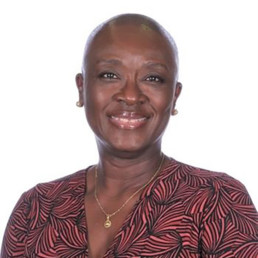
Coaching Bio
Remi uses the Transformational Coaching Approach with clients. The Transformative Coaching process is a proven empirical approach inspiring authentic change through awareness and growth. The approach uses the proprietary framework known as Awareness-Clarity-Choice Conversation (TM). It fully integrates the science of Emotional Intelligence (EQ) and Positive Psychology, creating a robust platform that results in long-lasting, sustainable change through allowing individuals to reconnect with others as well as their own essence and start making conscious choices and decisions.
Coaching Experience
Remi has been in the coaching space since 2009. She has coached on various national and local programmes such as the DFE Women Leading in Education, National College for Leadership of Schools and Children’s Services (formerly NCSL), National College for Teaching & Leadership, National Professional Qualification for Headship for The Institute of Education, University of London (IoE) and currently with East London Teaching School Hub and the Tower Hamlets FutureHeads programme. She also has her own coaching practice: Remi Atoyebi Consulting.
Career Experience
Remi is a certified Transformational Coach and a highly experienced Head Teacher. Since 2006, she has served as an Interim Executive Headteacher and Advisory Headteacher. with a demonstrable track record of working in education leadership and management. Skilled in School Improvement, Lecturing, Public Speaking, HR Processes and Policies. She served as a member of the DFE Primary Headteachers Reference Group, a body that advises the Secretary of State for Education and government ministers on education policies. She is also a Fellow of the Institute of Leadership and Management (ILM) and an Associate of the Chartered Institute of Personnel Development (CIPD).
Coaching Qualifications
ICF ACC
ILM L7
Transformational Coach
Coaching Accreditations
Approved Coach Specific Training Hours (ACSTH)
The Awareness-Clarity-Choice Conversation (TM) proprietary framework
Focused. Realistic. Practical. Remi is results-focused and caring at the same time. She brings a lot of experience and insights that will help answer many questions. She has an amazing ability to make you feel super-comfortable to talk to her about anything, and at the same time, you will not even realise you’re being challenged. Remi’s energy and ability to listen will help any coachee go away with a deeper understanding of their work and life. I look forward to continuing working with Remi into the future as I’ve found her coaching to be extremely beneficial.
Hussain Shefaar, Headteacher
Remi has been known to me since 2017 when she was assigned to me as my NPQH coach. The coaching I received was rewarding and I completed my NPQH with no areas for development. However Remi remained an integral part of my professional development. Her high challenge, low threat approach to coaching is one that has caused me to adopt a similar style of leadership because this approach has had a significant impact on my leadership. Through Remi’s coaching I have developed to think strategically even when confronted with challenging situations. Having a coach that uses a variety of tools to unlock your potential and enhance your ability to be impactful and bring about clarity of purpose in my life is an indescribable experience. Remi also takes a trauma informed approach to coaching and is always on hand to supply valuable wisdom unique to your goals and purpose. There is no doubt that if you say YES to Remi coaching you, your experience will be a transformational one.
Carlene Rowe, Deputy Head
I had four coaching sessions with Remi this year. The sessions were very open for me to talk about what I needed – even if I wasn’t quite sure what I needed before the sessions! Remi was excellent at steering me through some challenging issues. Furthermore, she is very good at getting you to see things through different lenses. I was very much listened to; it always felt like a safe space to share,be honest and problem-solve. I would recommend Remi to other senior leaders requiring coaching.
Ben Haigh, Assistant Head
Patrick Cozier Coaching Profile
Patrick Cozier
Patrick Cozier
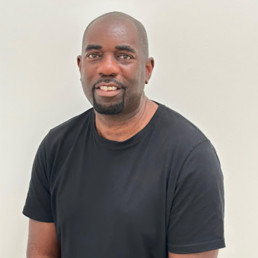
Coaching Bio
Patrick Cozier is a successful and experienced secondary school leader. He has been a Headteacher of a large comprehensive school (over 1500 students) for the last 17 years. He has also been the chair of the Haringey Secondary Heads Forum for the last 9 years. In the last five years he has sat on the Racial Equity Steering Committee as part of the Haringey Education Partnership and led the three most recent and successful conferences. In addition to being a Co-Vice Chair of trustees at Show Racism the Red Card, he also serves as a trustee of Horizons which is the charitable arm of the Haringey Education Partnership. As an educationalist he is committed to doing everything that he can to support our young people to thrive and become the best adults they can be. As a member of the black community he is passionate about seeking equality, justice and fair outcomes for people of colour.
Coaching Experience
As an experienced senior leader and headteacher of approaching 20 years I have mentored and coached many senior leaders. My experience ranges from those who I have line managed in my own organisation to those headteachers and senior leaders that I have coached and mentored privately. I have recently joined forces with Leaders Like Us – a Church of England supported initiative to utilise established black leaders to support other potential black leaders.
Career Experience
I have taught in London for the duration of my 29 year teaching career. I have been a senior leader for 22 years, 3 years as an AHT, 1 and a half years as a DHT and the last 17 years as a headteacher. I lead a large secondary school in North London and we are successful. We have been rated as good by Ofsted for the past three inspections (2011, 2016 and 2021) and our students consistently make better than expected progress at both GCSE and Post 16. In the last 18 months, I have taken on wider responsibilities as a trustee and also as a private leadership coach.
Malarvilie Krishnasamy Coaching Profile
Malarvilie Krishnasamy
Malarvilie Krishnasamy
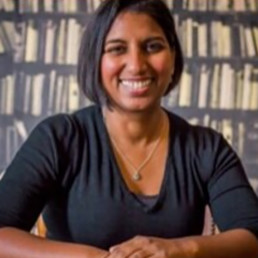
Coaching Bio
Malarvilie is an adaptive coach, empowering individuals to turn their aspirations into tangible goals. With a focus on Emotional Intelligence, Malarvilie uses personality profiling and coaching tools to enhance self-awareness and effective communication with different personalities. Through a solutions-focused approach, Malarvilie cultivates strength and compassion, guiding clients to become empathetic, authentic leaders. In a warm and supportive environment, Malarvilie fosters personal growth and empowers individuals to take charge of their future. Together, Malarvilie and clients embark on a journey of self-discovery, unlocking potential and paving the way for a brighter future.
Coaching Experience
Having accumulated seven years of professional coaching experience and a prior background in school leadership, Malarvilie possesses a wealth of expertise in guiding and supporting others. She has coached for WomenEd, Diverse Leaders programs, and has continued to voluntarily coach for the Maternity Paternity Project. Whether working with individuals, schools, or MATs, she embraces a personalised approach, tailoring her guidance to meet the specific needs of her clients. With an unwavering commitment to empowerment and growth, she actively shares her knowledge by training school leaders in coaching skills, aiming to foster a widespread coaching culture and equip them with the tools to effectively coach their teams.
Career Experience
Starting as a history teacher in the year 2000, Malarvilie built a strong reputation in middle and senior leadership roles. She became passionate about coaching when she became responsible for CPD and teaching & learning across a MAT in London in 2010. Malarvilie dedicated her maternity leaves to pursuing coaching courses, culminating in gaining the Level 7 in Executive Coaching & Mentoring. Driven by her young family, she established MalCPD Education Consultancy & Coaching, specialising in leadership and coaching, to support and develop others. For the last 7 years, Malarvilie has worked with individuals, schools, and MATs, offering valuable guidance and training to enhance leadership capabilities and develop a coaching culture across schools.
Coaching Qualifications
ILM L7
Coaching Accreditations
TypeCoach Certified Coach (MBTI)
Coaching Tools
MBTI
Mal became my coach just over six months ago and her impact on me as a person and a professional has been transformational. I have always been a reflective practitioner but at times my reflection has been unfocused, with a tendency to overthink and worry. Mal’s strengths included her ability to listen intently and to focus on and feed back to me the key issues in amongst the many things I talked about. She was willing to share herself and her experience to help me explore options and alternatives to my current ways of thinking and behaving. Most important to me was the way she validated my moral standpoint and supported me to continue to be true to my vision at times of professional pressure. Mal is caring, helpfully challenging and very, very wise. I hope to continue my shared learning journey with Mal into the future and highly recommend her as a coach.
Lena Carter, Co-Headteacher, Scotland
I found Mal compassionate, understanding and very reflective, ensuring that at the end of the session everything was summarised so I was clear on which way I was heading and what I needed to do. I was due to start a new school Sept… Mal helped me unpick some of the mistakes I made previously, and coached me on how to approach my colleagues. I’m pleased to say the change in style has made the transition in school a lot more easier than in previous schools. I would recommend Mal as a coach.
Amy Jeetley, Teaching & Learning Lead: Science
The Assertive Leadership coaching with Mal was one of the most impactful CLPL activities I have undertaken in my career. It allowed me to reflect on my own leadership on a personal level whilst coaching me to develop strategies to improve my skills and self-awareness. It gave me vital time and space to consider and discuss the impact of my leadership approaches in work and life. I have absolutely no doubt that it played a vital role in helping me to secure my first permanent Senior Leadership role – I even mentioned it during my interviews! Mal is friendly, extremely knowledgeable, and very down to earth. Her experience in real school settings allows her to contextualise the theory she explores with you and there is a real sense of empathy in her delivery. I thoroughly recommend the course. I would recommend Mal as a coach.
Sam Martin, Deputy Head
Dwight Weir Coaching Profile
Dwight Weir
Dwight Weir
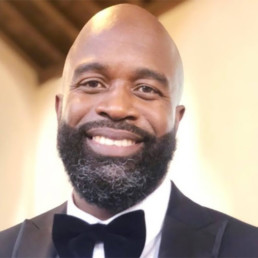
Coaching Bio
Dwight believes in people and the untapped power that we all have within! As a lover of learning he has had a number of coaches himself as he seeks to always develop himself so that he can impact others. As a Leadership and Personal Development coach, Dwight has worked with a number of different clients at different levels in their careers, mainly in education. Dwight has come from humble beginnings, he understands the struggles associated with reaching success when the odds are against you. All of Dwight’s clients have made considerable impact in their lives through coaching and have progressed due to his engaging and thought provoking sessions.
Coaching Experience
Dwight is a seasoned Leadership and Personal Development coach who has been working with clients in education for over 10 years. Dwight coaches his teams on a daily basis. He uses the GROW model approach in his coaching sessions to ensure that his clients leave each session with tangible and specific actions. He also uses NLP and DICS in his sessions. Dwight’s coaching sessions are client-led and results oriented. He has provided coaching services to clients with a focus on personal development, career growth, and work-life balance. He has developed and implemented individualised coaching plans resulting in all round client satisfaction. Dwight has coordinated and led group coaching sessions.
Career Experience
Dwight is originally an educator who has served in all capacities in schools. He has managed and led in pastoral and curriculum areas from middle to senior leadership level, this includes Headship. He has a Doctorate in Educational Leadership, National Professional Qualification for Headship and a diploma in coaching. Dwight has worked in the Caribbean, the Middle East and the UK. He is a practicing Leadership and Personal Development coach who finds absolute joy in helping others. In his free time he inspects British Schools overseas. Dwight is passionate about coaching, education and research into education.
Coaching Qualifications
ICF ACC
NLP
Coaching Accreditations
Diploma – Personal Performance Coaching
Resilient Leaders Elements pending
Coaching Tools
DISC
RLDP
Dwight provided an insightful series of 1-2-1 coaching sessions at a critical stage of my career. Dwight’s excellent listening and probing helped to develop solutions to complex issues within my role as Head of Sixth Form. He was also able to help me set short, medium and long-term career goals with clear action points to support me with the next stage of my career at senior leadership.
Johnathan Souch, Assistant Principal
Dr. Weir is an exceptional life coach who has profoundly impacted my life. From our very first session, his compassionate approach put me at ease, enabling me to explore and improve various aspects of my life. With keen insights and actionable strategies, he empowered me to overcome obstacles and set clear objectives. Dr. Weir’s unwavering support and dedication have been truly transformative, and I wholeheartedly recommend him to anyone seeking a life coach who genuinely cares about their success. Thank you, Dr. Weir!
Devereaux Boyd, Maths Lead Practitioner / KS3 Leader
These sessions brought out so many areas that I needed to work on in order to kickstart my journey of self-actualization. I have so much potential, but I was battling with negative mind chatter or negative self-talk. It was a constant battle as I told myself that I was not good enough or I wouldn’t be able to achieve much to further my career. Dwight enabled me to recognize my own potential and helped to guide me towards it. I have grown more confident in my role and myself. Dwight was easy to talk to, and he was very professional throughout. The sessions were well planned and challenging. The sessions have enabled me to believe in myself and my abilities. Dwight enabled me to recognise my own potential and helped to guide me towards it. I can truly say that I have grown more confident in my role as a practitioner and in myself. Thank you so much Dwight for helping to steer me in the right direction.
Christine Milton, SEND Lead Practitioner

